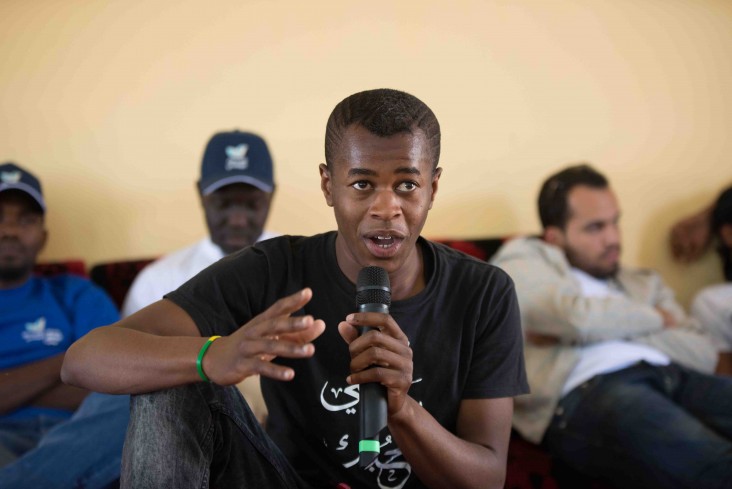
May 2014—After ridding the country of 42 years of dictatorship, Libyans are now faced with the daunting task of establishing a united vision for the future. Preparations are under way for an independent National Dialogue process to bring Libyans together to discuss issues of national importance and build consensus around them.
USAID’s Office of Transition Initiatives is providing the National Dialogue Preparatory Commission (NDPC) with strategic communications support and technical assistance to expand the Commission’s reach and build credibility for the process.
The popular uprisings that led to the overthrow of Muammar al-Qadhafi in 2011 united some communities, but divided many others. The NDPC has invited all groups to the table who believe in the Libyan state and are willing to talk. As a result, the National Dialogue process has an important role to play in national reconciliation.
“The expertise that USAID provides has helped the National Dialogue make the transformation from being an idea of a group of enthusiastic volunteers to being a critical building block in the construction of Libya’s institutions,” said NDPC Chairman Fadeel Lameen. “USAID’s support has directly contributed to our ability to build a highly professional media team that is at the heart of our ability to communicate to Libyans an alternative to the status quo.”
A team of senior communications professionals are providing the Commission with strategic direction and public relations support. Working from the NDPC offices in Tripoli, these experts have helped establish a website and strong Facebook presence in addition to writing press releases and setting up media appearances.
A technical expert is also advising the NDPC on civil society engagement to help ensure broad citizen engagement in the National Dialogue. At the same time, USAID is reaching out to its civil society partners in Libya to boost public engagement through roundtables, conferences and networking activities.
In April, a USAID-sponsored soccer tournament in the western city of Ghadames began each day with 80 players coming together to discuss how Libyan youth can engage in the National Dialogue process. In May, a three-day networking conference brought 80 Libyan youth activists together in the eastern city of Benghazi to advance their participation in the process.
The NDPC recently conducted an “engagement and participation” tour in 30 cities across the country. The tour, which aimed to build buy-in for the National Dialogue and solicit feedback on its design, brought different sectors of society together—young people, women, civil society leaders, religious figures, members of armed groups and minority groups—to share their views on national identity and the future of Libya.
Next, the Commission will hold a national conference, analyzing information gathered from the tour to develop a Libyan National Charter. Substantive discussions on issues such as national identity, development and transitional justice will follow.
Links







Comment
Make a general inquiry or suggest an improvement.